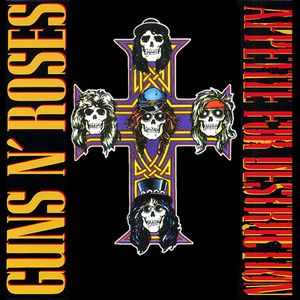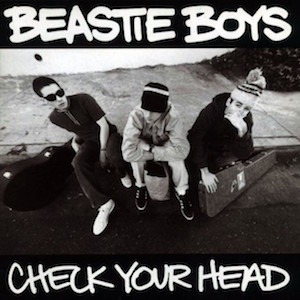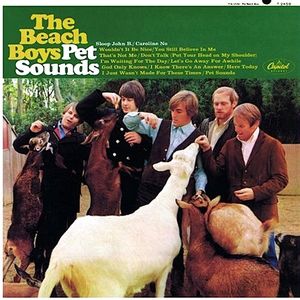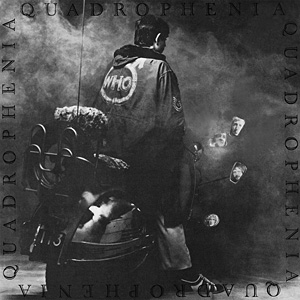This is part 55 of an ongoing series where the kind folk of the music business reveal their favourite album of all time.
Ask people in the music industry the seemingly simple and straightforward question, “What is your favourite album of all time?” and you’ll find that it’s not always easy. After all, my industry peers listen to hundreds of albums a month and thousands of songs during that time. Because the question isn’t the best album of all time or the one that’s made them the most money in sales, or the most clicked-on review, but the one release they personally can’t live without, that one title they have two copies of in several formats, in case one breaks. It’s also about that album that for them has the best back stories and the one that has the most meaning in their lives.


Fred Faour, KFNC 97.5, Houston, Texas
Guns N’ Roses, Appetite for Destruction
This seems like a simple question, but in truth, it was almost impossible to answer. So much of what makes great music comes from our personal experiences. We connect with artists at points in time and milestones in our life that help define us. Such was the case with Appetite. My own music career had ended and I was on to the real world, wondering why I never made it. Then from the first chords of Mr. Brownstone I understood what true brilliance really was. From the intricacy and depths of the guitar rifts to Axl Rose’s screeching range, the album spoke to me about addiction, ennui and pure energy. The massive mainstream hits overshadowed the overall quality of every song from start to finish. With each one, you knew what it was within two or three notes. It reminded me that music at its very best is an art form unmatched in our society, and is to be appreciated and praised. Not all of us can create art at that level, but we can all share in its magic. And that’s what this album is to me: Pure magic.


Kevin Oschefski, Program Director/ Morning Host, KiSS 100.5, North Bay, ON
Kathleen Edwards, Failer
Simplistic, brilliant and heartbreaking. I first heard Kathleen’s full length debut back in 2003 when a record rep dropped off a stack of CDs at the radio station I was working at. I grabbed a copy and barely one track in I was hooked. Songs like “Hockey Skates”, “Mercury” and “Westby” made me an instant fan. In fact one of the biggest thrills for me, was visiting Quitter’s coffee shop in Stittsville last summer. Kathleen owns it. I dropped by several times, CD in hand, hoping to meet Miss Edwards herself. I finally did, and though at a loss for words, my wife walked me over and introduced us. It was my last “fanboy” moment.


Drew Garabo, Host, 102.5, Tampa Bay, FLA
Beastie Boys, Check Your Head
On it, Adams Horowitz and Yauch joined with Michael Diamond to create a magical blend of rap, funk, and punk. They started playing their own instruments and added keyboardist Money Mark to the mix. Songs like Pass the Mic, So Whatcha Want, Professor Booty, and The Maestro resonated in the hearts and minds of their multitude of devoted fans, creating a soundscape that picked up where their Sgt. Pepper-like opus Paul’s Boutique left off.


Geoffrey Himes, music critic for the Washington Post, Paste, Nashville Scene, American Songwriter, Jazz Times, Downbeat, Texas Music and more, host of Roots Café Baltimore
The Beach Boys, Pet Sounds
If I had to spend the rest of my life on a desert island with a working record player, and I was only allowed to bring one album, the Beach Boys’ Pet Sounds would be that disc. I might choose differently I were assigned to spend the rest of my life in a big American or European city, where I might prefer the verbal brilliance of a Bob Dylan or a Randy Newman to help decode the social babble. But if it were an island where I was cut off from society and forced to confront the more elemental features of human nature, I think I would prefer Brian Wilson’s sumptuous harmonies and wistful melancholy. If you’re going to have to listen to the same damn recording for the last 20 years of your life, it should be one that reliably delivers pleasure as well as understanding. And what would I understand? When that locomotive pulls away from the singer as the dizzying harmonies of “Caroline No” flicker out, when that barking dog goes chasing after that train, I’ll know that it’s not just adolescence that’s disappearing; it’s life itself that’s fleeting. And we have no more chance of stopping it than that dog has of catching that train.


Howard Druckman, Editor of SOCAN‘s Words + Music Magazine
The Who, Quadrophenia
It’s an almost impossible choice, but because it was the most emotionally resonant album for me during a particularly vulnerable time in my adolescence, I’d have to go with The Who’s Quadrophenia. As a messed-up teenage kid from a pretty dysfunctional family, I felt like the band, and especially Pete Townshend, was giving fearless expression to everything sad and angry that I was thinking and feeling at the time. Their playing was never better, from Townshend’s slashing power-chords to Roger Daltrey’s primal howl, John Entwistle’s fluid basslines to Keith Moon’s extraordinary demolition work coming out of every quiet bridge. Seeing them on the tour that followed, at the Montreal Forum, with my brother, is one of my favourite memories from a life in music that’s full of them. When I heard Townshend was going to bring Quadrophenia to Broadway, I was furious that he was going to ruin it forever like he did with Tommy, and — inspired by Bill Hicks — I wrote a scathing column for umbrellamusic.com (now defunct) suggesting that he commit suicide in order to save his soul. That’s how much the album meant to me, and I’m still glad he never did sell it out and water it down. Quadrophenia holds up to this day, and listening to it can still take me back to that time and place — but viewed from the much broader and more generous perspective of adulthood.




